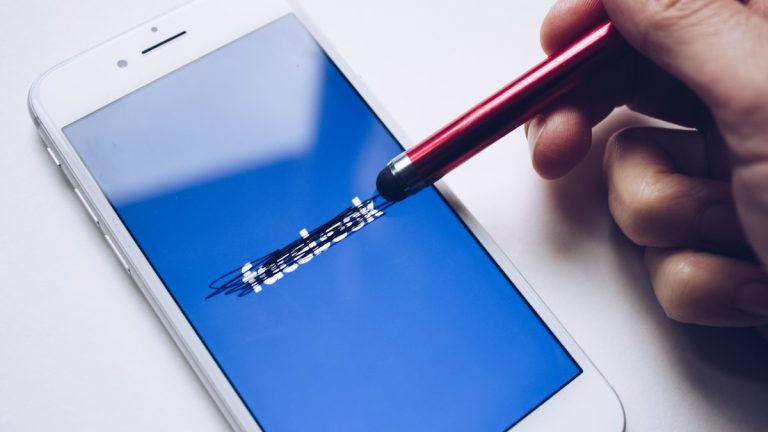
In the modern digital age, social media platforms have become an integral part of our daily lives. They connect us to friends and family, provide a space for self-expression, and offer endless streams of information and entertainment. However, beneath the surface, the pervasive use of social media has been linked to detrimental effects on mental health, contributing to the rise of depression and anxiety. This article delves into the ways in which social media influences our minds and provides strategies for maintaining a healthier relationship with these platforms.
The Comparison Trap:
One of the significant ways in which social media can impact mental health is through the “comparison trap.” Scrolling through curated feeds of seemingly perfect lives can lead to feelings of inadequacy and low self-esteem. Constant exposure to others’ achievements, vacations, and happy moments can distort our perception of reality, making us feel as though we are falling short. This phenomenon is particularly evident on platforms like Instagram, where carefully curated images can create unrealistic standards.
FOMO and Social Isolation:
The Fear of Missing Out (FOMO) is another psychological aspect exacerbated by social media. Constant updates on others’ activities can lead to anxiety about not being included in events or experiences. Paradoxically, the more we try to stay connected virtually, the more isolated we can feel in real life. The reliance on virtual interactions can hinder the development of meaningful face-to-face connections, which are crucial for emotional well-being.
Cyberbullying and Trolling:
The anonymity offered by social media can lead to cyberbullying and trolling. Negative comments, online harassment, and hurtful messages can deeply affect one’s self-esteem and mental health. The ability to hide behind a screen often emboldens individuals to engage in behaviors they wouldn’t in person, resulting in emotional distress for the victims.
Constant Connectivity and Stress:
The constant need to check notifications and stay connected can lead to a state of constant alertness, contributing to heightened stress levels. The boundary between work, personal life, and leisure becomes blurred, leading to burnout and fatigue. The pressure to maintain an active online presence can become overwhelming, forcing individuals to feel compelled to share every aspect of their lives.
Strategies for a Healthier Relationship with Social Media:
- Mindful Usage: Set specific times for engaging with social media, limiting the amount of time spent scrolling mindlessly. Being mindful of your consumption can help prevent the negative impacts of excessive use.
- Unfollow and Unplug: Unfollow accounts that trigger feelings of comparison or inadequacy. Taking regular breaks or digital detoxes can also help to recalibrate your relationship with social media.
- Real-Life Connections: Prioritize spending time with friends and family in person. Meaningful interactions can provide a sense of belonging and fulfillment that virtual interactions often lack.
- Gratitude Practice: Regularly practice gratitude by focusing on the positive aspects of your life rather than comparing yourself to others. This can help counteract feelings of envy and inadequacy.
- Seek Professional Help: If you find that your social media usage is significantly impacting your mental health, don’t hesitate to seek support from a mental health professional. Therapy can help you navigate these challenges and develop coping strategies.
While social media has its merits, it’s essential to recognize its potential negative impact on mental health. By practicing mindful usage, cultivating real-life connections, and taking steps to protect your mental well-being, you can mitigate the detrimental effects of social media and enjoy a healthier relationship with these platforms. Remember that your mental health should always be a priority, both online and offline.
Frequently Asked Questions (FAQ) on the Impact of Social Media on Mental Health
Que: How does social media affect mental health?
Social media can have both positive and negative impacts on mental health. It can foster connections and provide support, but excessive use can lead to feelings of loneliness, anxiety, and low self-esteem.
Que: What is “social media anxiety” or “social media depression”?
These terms describe feelings of inadequacy, jealousy, or sadness triggered by comparing oneself to others on social media. Constant exposure to curated content can lead to unrealistic expectations and a negative self-perception.
Que: Can social media use lead to addiction?
Yes, excessive social media use can lead to a form of behavioral addiction, where individuals feel compelled to constantly check and engage with their social media platforms, sometimes to the detriment of other aspects of their lives.
Que: Does social media impact self-esteem?
Social media can impact self-esteem by promoting constant comparison with others. Seeing carefully curated posts and images may lead to feelings of inadequacy and lower self-worth.
Que: Is cyberbullying a concern related to social media?
Yes, cyberbullying involves using digital platforms to harass, intimidate, or demean others. It can lead to significant mental health issues, including anxiety, depression, and even suicidal thoughts.
Que: Can social media provide mental health benefits?
Yes, social media can be a source of support, connection, and information for people experiencing mental health challenges. Online communities can offer a sense of belonging and understanding.
Que: Can taking breaks from social media help?
Yes, taking breaks from social media, also known as a “digital detox,” can provide relief from constant connectivity and help reset your relationship with online platforms.
Que: Where can I find professional help for mental health issues exacerbated by social media?
If social media is negatively impacting your mental health, consider seeking support from mental health professionals, therapists, counselors, or support groups both online and offline.




